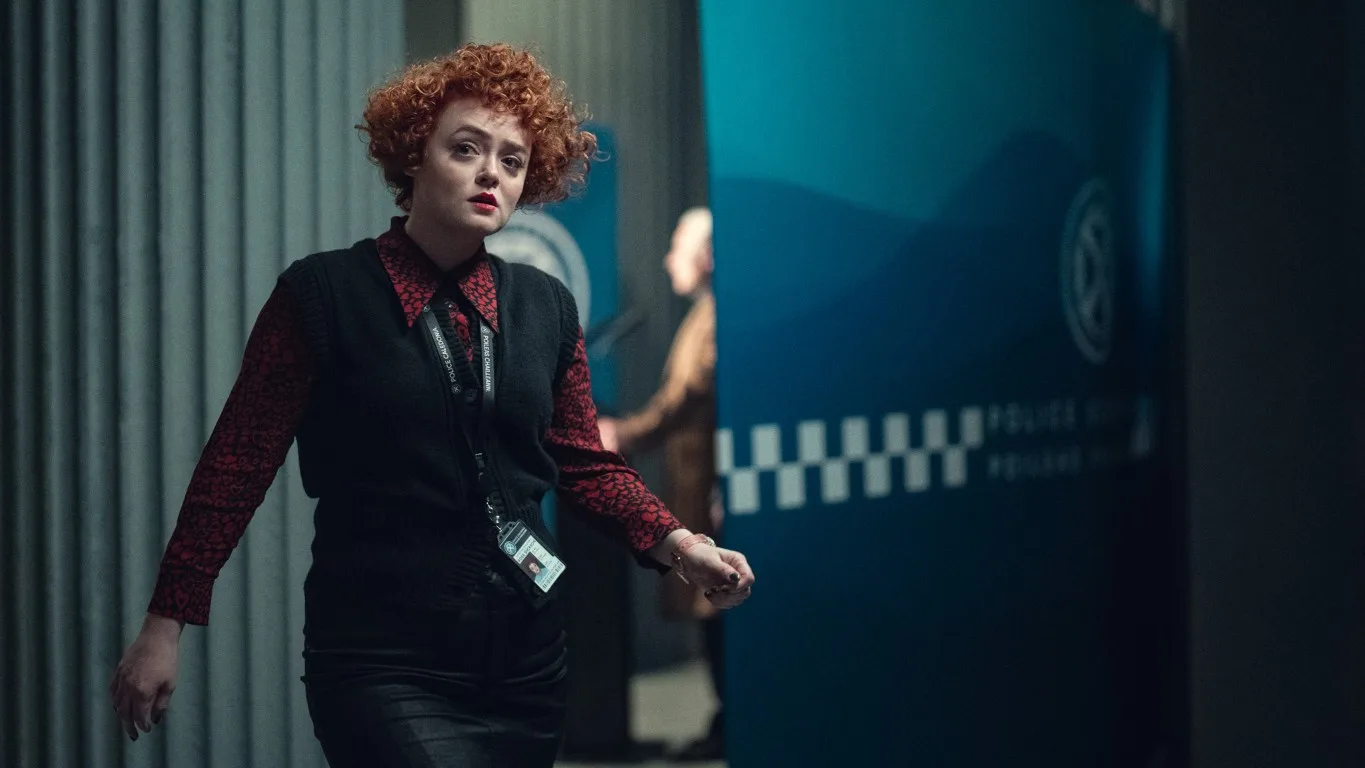Even great writers are being defeated by the epidemic of bloated streaming series. Look no further than Netflix’s “Dept. Q,” adapted from the series of books by Jussi Adler-Olsen by none other than the brilliant Scott Frank, the certified genius behind “Out of Sight,” “Logan,” “Godless,” and “The Queen’s Gambit.” The man is one of our best living writers, but even he is brought down by stretching what could have easily been a feature-length film of plot into a nine-hour mystery. His skill with dialogue and character, along with an excellent ensemble, keep “Dept. Q” from completely falling apart, but it feels like another product of a streaming company’s mandate to boost their “hours watched” stats instead of a length that has been considered right for the story that’s being told.
“Dept. Q” allows Frank to reunite with Matthew Goode, one of the stars of his directorial debut, the underrated “The Lookout.” The series opens with Goode’s detective Carl Morck at the scene of a memorable crime with his partner Hardy (Jamie Sives) and a beat cop. A man has been stabbed in the head, and the trio trade theories of the crime when a masked figure suddenly steps into the room and fires, killing the young officer and paralyzing Hardy. Only the fact that the bullet went through Hardy’s spine before slowing to enter Morck’s neck saved the latter’s life. That can lead to some trauma, which Morck is begrudgingly working out with Dr. Rachel Irving, effectively played by Kelly Macdonald.

The trauma turns Morck into a traditional cop-on-the-edge, but Goode, always a solid and underrated performer, shades him with enough truth to overcome the cliché. He’s bitter to the point of recklessness, but that also makes him arguably a better detective as he blasts through the roadblocks that he may have heeded more before his trauma. As he recovers, he’s forced into the formation of the titular unit, a cold case department that also eventually includes the brilliant Akram Salim (the excellent Alexej Manvelov), a sort of logical balance to Morck’s more heated approach, and the ambitious Rose (Leah Byrne). Salim is the one who reads all the files and settles on the disappearance of Merritt Lingard (Chloe Pirrie) as their first case. A tough-as-nails prosecutor, Lingard vanished four years earlier, presumed dead. We learn relatively quickly that she is not.
For most of its nine-episode length, “Dept. Q” bounces back and forth between the Dept. Q detectives trying to solve Merritt’s case and the victim herself stuck in a pressurized chamber, where she’s been tortured for the last four years. In a sort of variation on “Oldboy,” Merritt is forced to solve the mystery of who kidnapped her and why from the inside, while Morck and his allies do the same from the outside. It’s the show’s cleverest conceit—working a case from both sides, using the forced POVs of the kidnapped and the detectives to put it together for the audience.
The problem comes down to how long it takes for anyone to solve a mystery that was once deemed enough for a feature film—the story has already been adapted into the 2013 Danish film “The Keeper of Lost Causes,” from a screenplay by Oscar nominee Nikolaj Arcel (“A Royal Affair”). I’m not familiar enough with the source material or the film adaptation to say for sure where this story has been padded, but it simply hasn’t been done so in an interesting enough manner to justify nine hours of television.

By the time of the reveal of the kidnapper, I honestly didn’t care, and Frank’s approach relies too heavily on the case itself to make it work solely as a character study, despite drawing excellent performances from everyone involved. It never answers the question of its length. Why should we watch Merritt be tortured for literally hours to solve the mystery of who’s putting her through such horrors? What’s to be gained by so much of that? The final couple chapters have their memorable beats and reveals, but it takes so long to get to them that it’s more exhausting than revelatory.
Having said that, Frank is still a marvelous writer within the beats of his bloated construction, finding character notes and scripting exchanges that can be appreciated as parts instead of the overall sum. In that sense, “Dept. Q” becomes one of the more interesting products of the Streaming Era in that its plotting drags even as its performances shine. If it wasn’t so reliant on the mystery of Merritt Lingard, it would be easier to recommend purely as an acting and writing exercise.
These issues can easily be worked out in a likely season two. Don’t insist on nine episodes, Netflix. This season would have worked at six, or maybe even five. Or, better yet, make a movie.
Full season screened for review. Now on Netflix.












